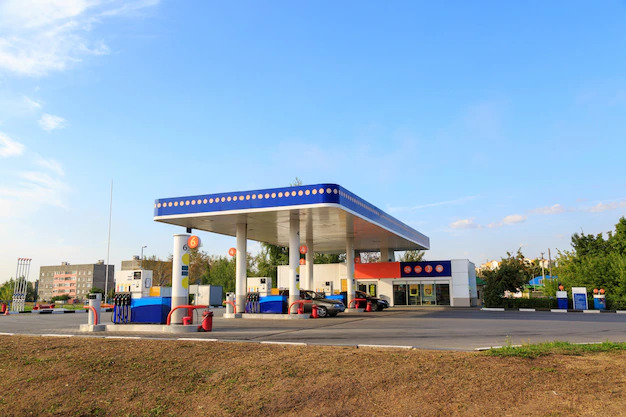.png)
Industrial safety is critical for the well-being of workers and the productivity of businesses. The U.S. Bureau of Labor Statistics recorded 4,764 fatal and 2.7 million non-tragic industrial work injuries and illnesses in 2020.
Research suggests that changing weather conditions can affect employees performing both indoor and outdoor operations. With the monsoon around the corner, (rain-induced) workplace accidents are expected to escalate, declining the quality and progress of industrial projects.
Therefore, industrial authorities should provide safe work grounds for their employees to prevent loss by following rain safety protocols.
Let’s learn more about the common workplace injuries (caused by rain) that affect the industrial health and safety of workers and some ways to mitigate such events by following an appropriate monsoon safety plan.
Common Reasons for Workplace Accidents In Monsoon
Working during the monsoon season can be riskier for employees, particularly (those participating/involved) in construction, transportation, electrical, and emergency services. Neglecting rain safety can lead to serious health hazards.
The following reasons cause various industrial accidents:
- Rain makes it hard for heavy weight-lifters such as cranes, forklifts, and conveyors to move smoothly and apply brakes immediately, which can cause severe injuries.
- Workers can slip from the wet floors, resulting in severe fractures or critical spinal issues.
- Direct contact with wet electrical equipment or tools puts the workers at high risk of electrocution.
- Massive boxes and objects may fall off the racks due to pressure, hitting workers on the ground.
- Blasts and explosions can occur after rainwater comes in contact with sensitive electrical instruments or furnaces, resulting in fatal injuries and even casualties.
- The rainy season can affect the warehouse structure. Water can seep through the surfaces, weakening and damaging the rooftops, sometimes leading to complete structural collapse.
- Poor visibility makes it difficult for employees to work outdoors, often leading to major accidents.
Monsoon Safety Tips To Improve Industrial Safety and Health
Most workplace accidents are avoidable by planning carefully and taking preventive actions beforehand. To create a safe working environment, follow industrial health and safety principles listed below:
- Inspect Warehouse & Conduct Maintenance: Warehouses manage production operations and store hefty materials. Regular inspection and maintenance sessions can prevent damage to the building during monsoon.
- Test Run Machine Components: Manufacturing units or machines may malfunction due to moisture. Checking the machinery before the task can help identify issues.
- Use Safety Lights: Workplaces must have adequate emergency lighting systems to tackle power outages during rain. Workers with outdoor assignments should keep backup lights to help work in low-visibility areas.
- Wear Bright Reflective Clothes: Companies should provide bright-colored vests or reflective jackets to laborers working around vehicles or heavy machinery. In this way, they will be visible outdoors and be prevented from being hit by other trucks, forklifts, cars, etc.
- Clean Surfaces and Surroundings: It is difficult to walk on the slippery ground during rain. Using humidifiers, fans, and mopping machines can help the drying process. Whereas placing wet-floor signs and special door mats can reduce tripping cases.
- Build Safe Electrical Systems: Workers need to be vigilant and extra cautious when working around electrical systems. Building safe electrical wire units and unplugging unnecessary electrical devices are critical for employee safety during rain.
- Place First-Aid Kits: Minor injuries or burns are often treatable and curable without professional medical assistance. Therefore, emergency kits equipped with instant medications, bandages, and ointments should be made available for workers.
- Install Fire Extinguishers and Emergency Alarms: Rainwater can damage the machinery badly. Hence, fire extinguishers and safety alarms should be installed to handle flammable electrical wiring and explosive-sensitive devices.
- Wear Proper Gear: Workers must wear waterproof gear and have an umbrella, especially when working outdoors. The essentials are the essentials: anti-fog goggles, rubber gloves, non-slip boots, and raincoats.
- Choose the Right Tools: Workers must select outdoor approved and non-slip body tools. During rain, workers should avoid the use of electric devices.
Integrating Modern Technology To Promote Industrial Safety and Health
The growing industrial needs and changing operational trends demand dynamic solutions to handle workplace issues. From maintaining balance between production and supply chain to keeping track of employee performance, reliance on manual tools and techniques is no longer effective.
SafetyConnect brings an Action Tracking System (ATS) that automates the entire management functionality within a single platform. It helps create checklists and workplace safety audits to identify potential workplace hazards. SafetyConnect lets the members easily track when and where inspections are needed and sends alerts to the team to initiate corrective and preventative actions.
Get a free demo to explore our ATS CAPA system.



.png)

